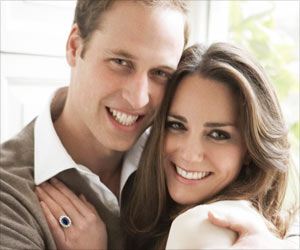The death of Tim Russert has been widely mourned in the US. He collapsed while at work Friday last. It was a cardiac death that felled him, but he had few outward signs he was in danger.
The death of leading political analyst Tim Russert has been widely mourned in the US. He collapsed while at work Friday last. It was a cardiac death that felled him, but he had few outward signs he was in danger. He was a robust man and was only 58.
Television sources said Russert was recording a voice-over in a NBC studio when he collapsed. He was briefly revived and rushed to the hospital, but apparently passed away either on the way or at a local Washington D.C. hospital.After an autopsy, Russert's doctor, Michael Newman, cholesterol plaque ruptured in an artery, causing the heart attack. Newman also said the autopsy showed an enlarged heart.
Dr. Douglas P. Zipes, director emeritus of the division of cardiology at Indiana University School of Medicine in Indianapolis, and former president of the American College of Cardiology, told WebMD - What he had was sudden cardiac arrest. Now, whether it was due to a heart attack or not is unestablished. But more likely than not, it's due to this abnormal heart rhythm called ventricular fibrillation. That's when the bottom chamber [of the heart] beats at 400-600 times per minute, has no effective blood flow to the brain, you black out, and then, unless it's reversed, you die in three to five or seven minutes or so. This is the rhythm that's treated with an external defibrillator, and had one been available and used, it's certainly possible that he could have been resuscitated.
Now, ventricular fibrillation may be caused by a heart attack; it doesn't have to be. The likely scenario in a 58-year-old, slightly obese male is a coronary thrombosis -- an obstruction of a coronary artery -- that triggers the ventricular fibrillation and causes the sudden death.
Two courses of action may help: CPR or a defibrillator, ABC News reports.
When used correctly, the defibrillator sends a jolt of electricity to the heart, correcting the electrical signals and allowing a normal heartbeat to return. Occasionally, CPR can keep the blood flowing until a defibrillator arrives, but the defibrillator is key to survival.
Advertisement
It is unclear what, if anything, Russert himself could have done to prevent sudden cardiac death.
Advertisement
And Russert, according to his doctor, had diabetes, heart disease and was overweight. But then his heart condition was well controlled with medication and exercise, and he had performed well on a stress test in late April.
In 2005, 16 million people in the U.S. had heart disease. Though many treatments are available from statins, to screening, to diet and exercise regimens, this common disease is a killer.
The U.S. Centers for Disease Control and Prevention reports that about every 26 seconds, an American will have a coronary event, and about one every minute will die from one.
"People think that taking preventive drugs like statins and aspirin can overcome the risk of an unhealthy lifestyle. They can't," says Dr. Sharonne N. Hayes, director of the Women's Heart Clinic at the Mayo Clinic in Rochester, Minnesotta. "These are complimentary efforts."
Dr. C. Noel Bairey Merz, of the Cedars-Sinai Medical Center, agrees. "Clinical trials also show that the lifestyle regimen is about half, so taking pills alone is not optimal," says Merz.
Source-Medindia
GPL/L










